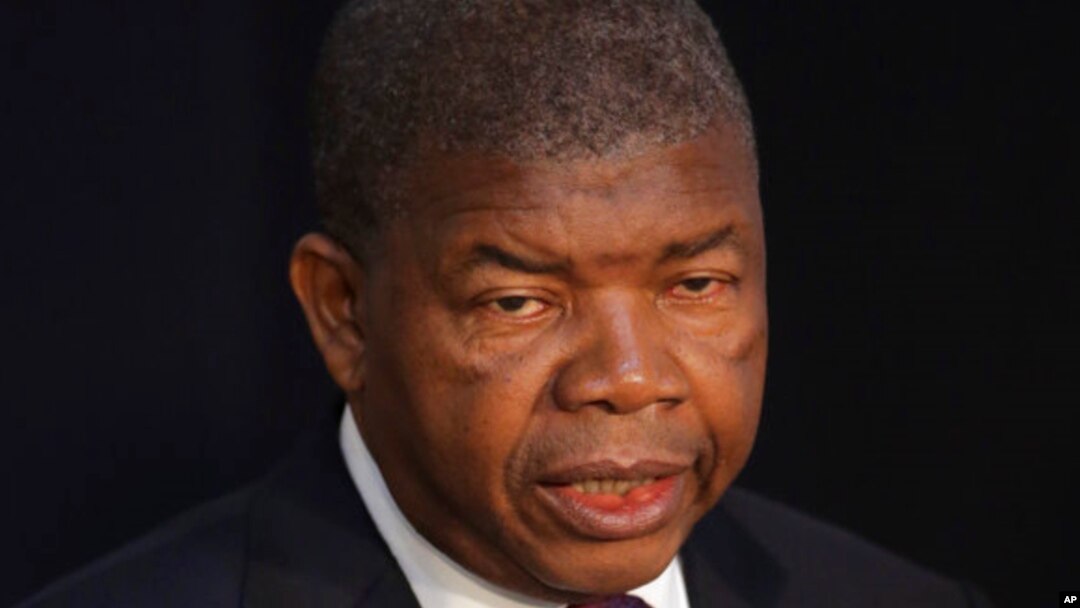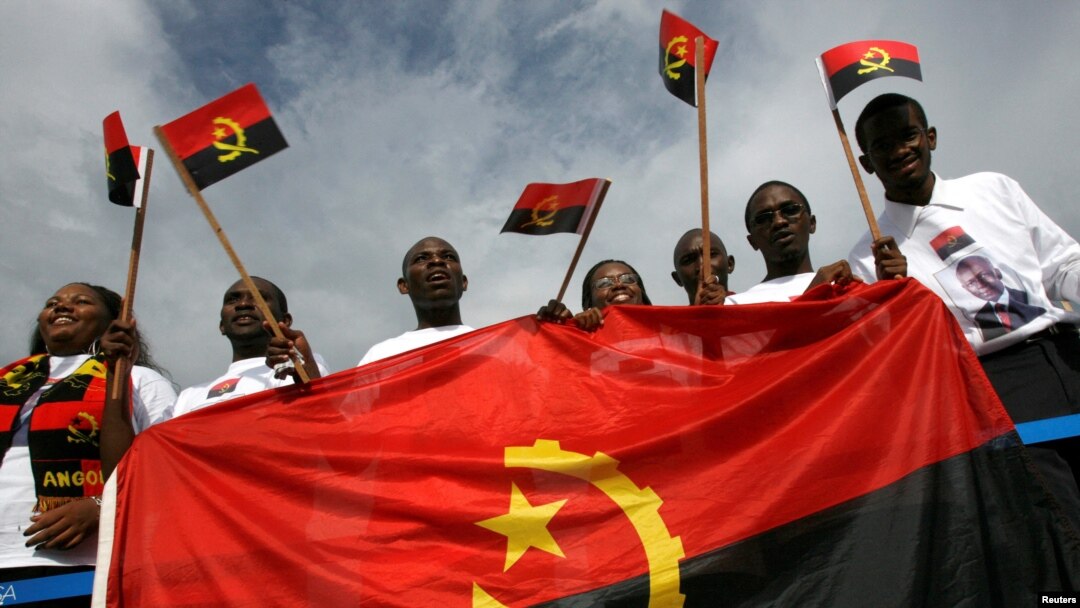Incumbent President Joao Lourenço of the Popular Movement for the Liberation of Angola (MPLA) is vying for re-election, facing Adalberto Costa Junior, the charismatic new leader of Angola’s main opposition party, the National Union for the Total independence of Angola (UNITA).
Popular among Angola’s fast-growing urban youth, Costa Junior is a fierce critic of the ruling party’s reforms.
“What’s been most interesting about him is that he’s tried to take the party through a slow modernization. He’s someone that is able to bring a lot of people through to campaign rallies, he engages with people on social media – he’s trying to offer a kind of more direct line to the presidency,” political analyst Marisa Lourenço told VOA’s Straight Talk Africa program.
The MPLA has firmly held power since Angola gained independence from Portugal in 1975. The party won just over 61% of the vote in the 2017 general election with the UNITA claiming 27%.

FILE - Angolan President Joao Lourenco speaks in a news conference at the Belem presidential palace in Lisbon, Thursday, Nov. 22, 2018.
Lourenço — the hand-picked successor of the late former President Jose Eduardo dos Santos — came into office declaring war on corruption, nepotism, impunity and promising to reform Angola’s battered economy. His anti-corruption drive has received praise abroad.
But critics say the president’s corruption crackdown has been selective and politically motivated. Lourenço’s efforts to reform and “open up” the economy have also fallen short, analysts say.
“His administration has been very committed to fiscal prudence, to reducing wasteful expenditure, and that has really paid off very well,” Marisa Lourenço said. “So it’s helped broad stability, but it hasn’t really trickled down. So, it hasn’t resulted in increased jobs or increased investment, and this is why we still have very high unemployment.”
A survey by pan-African research network Afrobarometer shows only 1 in 5 Angolans trust the country’s national electoral commission. Some analysts fear violence could ensue.
Your browser doesn’t support HTML5
Angola Lourenco and Costa Jnr. Gear Up for Presidency Contest
“The most important is how Angolans will react to the election. I’m really afraid that we might see post-electoral violence in Angola. And I hope that it is not going to happen because that is not good for Angola. That is not good for the continent,” Borges Nhamirre, a research consultant at the South Africa-based Institute for Security Studies, told Straight Talk Africa.
Luís Jimbo, coordinator of the Angolan Electoral Observatory, told VOA that Angola must build “trust” with voters and create "an atmosphere where everybody accepts the result” to avoid violence, especially among the country's youth.
With an estimated 14 million people registered to vote, many are bracing for a tight race, in what could be one of the most consequential elections in the southern African nation’s history.
VOA Portuguese reporter Mayra Fernandes contributed to this report.


